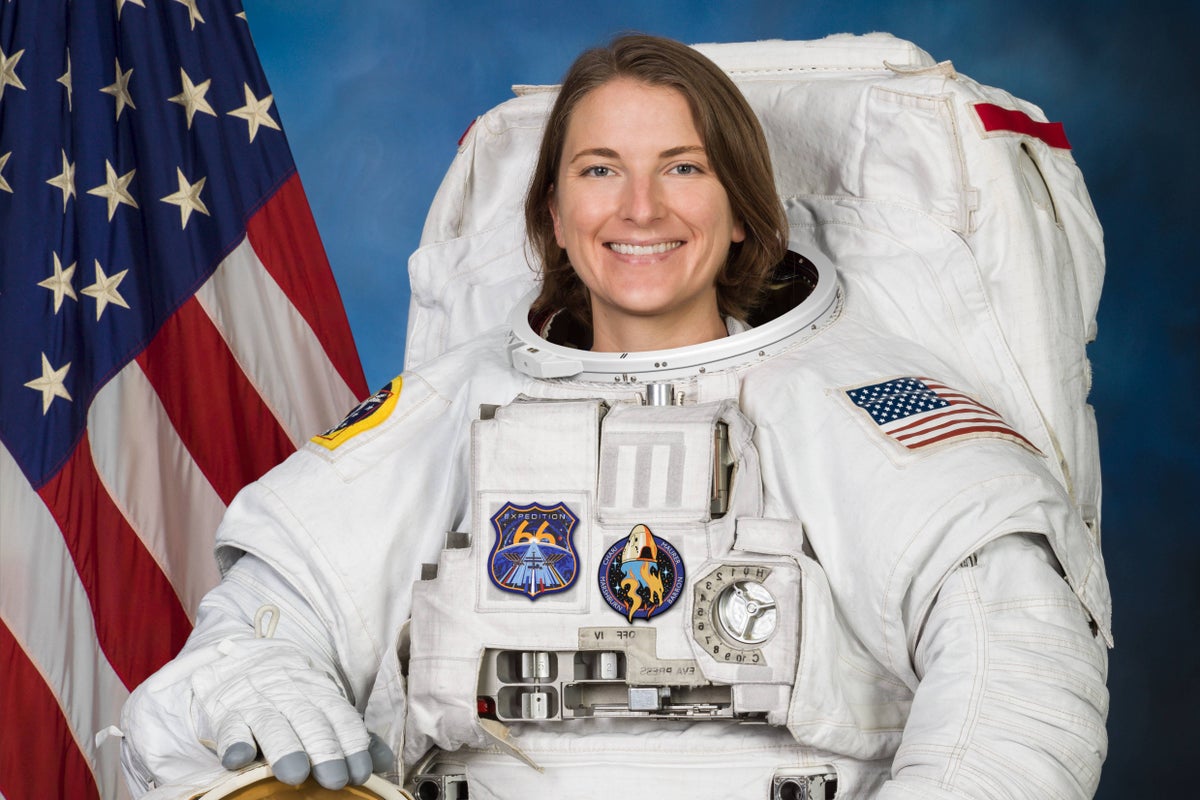
Missions to the Moon will help prepare humans for lengthy periods of time in space – and set the stage for people going to Mars, an astronaut has said.
Kayla Barron could potentially be the first woman to step foot on the lunar surface as part of Nasa’s Artemis missions, which will soon be heading back to the Moon for the first time since 1972.
It will be the first time a woman walks on the Moon, and US Navy Lieutenant Commander Barron is among those hoping to make history.
Last year, she returned from six months on the International Space Station, where she and her crew conducted hundreds of scientific experiments.
We know that we will not succeed on our own, and so the more people, perspectives, backgrounds, we can bring in, the more successful the stronger our team will be— Kayla Barron, Nasa astronaut
Helping the agency to prepare for future trips to the Moon, the astronaut told the PA news agency she, along with other astronauts who have spent time in space, have a unique perspective to offer.
She said: “One of the things they were talking about doing for Artemis was increasing the amount of water volume we get to take with us to drink to hydrate, but they’re not talking to the waste management team who’s manifesting essentially the adult diapers we wear to deal with urine when we’re in this spacesuit.
“You’re like ‘great that we have more water to drink, but where’s it gonna go?’.
“So there’s things like that, that as a user of that technology, it’s the first thing you think of when you hear we’re gonna give you more water.”
Lt Cmdr Barron, said she is part of a class of Nasa astronauts that could be selected to be the next humans to step on the Moon.
She told PA: “I think we need diversity of all kinds to tackle these incredible challenges – sending human beings to live in space continuously for decades aboard the space station, sending human beings to the moon again, to the lunar South Pole, creating a permanent human presence on and around the Moon, and eventually sending human beings to Mars.
“That is a tough challenge.
“We know that we will not succeed on our own, and so the more people, perspectives, backgrounds, we can bring in, the more successful the stronger our team will be.”
Asked what she was hoping for from the Artemis missions, she added: “We have a tonne to learn about the Moon that can tell us about our planet and our solar system.
“We explored this tiny little area of the Moon during Apollo.
“And so I’m really excited to see the scientific discoveries that will come out of the geology work we do there.
“But for me, I’m also super excited that we’re going to be developing and testing all the technologies that we’ll use to send human beings to Mars.
“Artemis is the proving ground, the Moon is the proving ground for all of those things.
“And so we’re going to be developing, testing, refining those technologies along the way.”
Lt Cmdr Barron was speaking ahead of giving a talk at the Cambridge Festival which runs from March 17 to April 2 and features hundreds of events on subjects ranging from politics and technology to health and climate change.
She spent a year at the University of Cambridge earning her Master’s degree in Nuclear Engineering.
Lt Cmdr told PA: “It’s always exciting for me to engage with the community and Cambridge because it was such a formative experience for me to be around such a diverse community.
“Diverse in every way, but the intellectual diversity and passion was really interesting to me to see people studying such a wide range of things with such passion.
“And really this belief that what they were working on would make the world better for others.
“And for me, that was super inspiring, and that really broadened my horizons in terms of thinking about how I could contribute.”
Named after the Greek goddess of the Moon and sister to the god Apollo, namesake of Nasa’s first Moon missions, the Artemis programme will see the construction of the Lunar Gateway – a new space station where astronauts will be able to live and work.
Nasa expects the first Artemis astronauts to land on the Moon in 2025.







